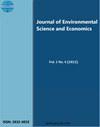外国直接投资和金融发展在经济增长中的作用:来自全球收入国家的证据
引用次数: 10
摘要
以往的研究者在特定的国家或地区样本中探讨了FDI与经济增长或金融发展与经济增长的作用,但尚未对FDI、银行和股票市场对地区或收入群体经济增长的影响进行集体研究。利用1998年至2018年全球193个中高收入(UMI)、中低收入(LMI)和高收入(HMI)国家的平衡面板数据集,该研究首次采用静态方法和动态方法探讨了外国直接投资、银行和股票市场金融发展对经济增长的作用,这有助于对集体和基于收入的国家群体的稀缺文献做出贡献。全球面板的所有模型结果都表明,FDI对全球面板、中低收入(LMI)和中高收入(UMI)国家的经济增长有显著和积极的影响,而对高收入(HI)国家则不是如此。银行业发展对经济增长也有显著影响,但在全球面板、高收入和中高收入国家是负面影响,而对中低收入(LMI)国家影响不显著。在全球面板上,股票市场的发展对经济增长也有显著的负向影响。结果表明,FDI对经济增长的影响大于银行和股票市场金融发展的影响。本研究建议高收入国家在改善FDI吸引方面,中低收入国家在改善银行业方面,并共同建议改善银行业和股票市场的主要驱动力和功能,以刺激经济增长。本研究有助于研究国家的政府渠道和金融部门做出进一步的决策。本文章由计算机程序翻译,如有差异,请以英文原文为准。
The role of foreign direct investment and financial development in economic growth: Evidence from global income countries
Prior researchers have explored the role of FDI and economic growth or financial development and economic growth in a particular sample of countries or region while no collective studies on the effect of FDI, banks and stock market on economic growth in region or income-based groups have been conducted yet. Using a balanced panel data set of the globe of 193 upper middle income (UMI), lower middle income (LMI) and high income (HMI) countries for the period of 1998 to 2018, the study ever the first time explore the role of FDI, banks and stock markets financial development on economic growth by employing static methods and Dynamic approaches which contributes to the scarce literature on the collective and across income-based groups of countries. All model findings for the global panel indicates that FDI affect economic growth significantly and positively in the global panel, lower middle income (LMI) and upper middle income (UMI) countries where it’s not true for high income (HI) countries. Banking sector development also affect economic growth significantly but negatively in the global panel, high income and upper middle-income countries while not significant for the lower middle income (LMI) countries. Stock market development also affects economic growth significantly but negatively in the global panel. Furthermore, the result concludes that FDI have a larger effect on economic growth than does banks or stock market financial development. This study suggest high income countries regards improving FDI attraction, lower middle income (LMI) countries in regards improve banking sector and collectively suggest to improve major driver and functioning of banking sector and stock markets to spur economic growth. This study is beneficial for the government channels and financial sector of the study countries to make further decision.
求助全文
通过发布文献求助,成功后即可免费获取论文全文。
去求助
来源期刊

Journal of Environmental Science and Economics
Environmental Economics-
自引率
0.00%
发文量
0
期刊介绍:
Journal of environmental science and economics (JESCAE), ISSN: 2832-6032 is an open access peer-reviewed journal that considers articles and reviews articles on all aspects of environmental economics.
Aim and Scope
Journal of Environmental Science and Economics is an international scholarly refereed research journal that aims to promote the theory and practice of environmental economics, Sustainability research, technological innovation, and economics. A broad outline of the journal''s scope includes; peer-reviewed original research articles, case, and technical reports, reviews and analyses papers, short communications and notes to the editor, in interdisciplinary information on the practice and status of research in environmental science, sustainability, technological innovations, and economics.
The main aspects of research areas include, but are not limited to; Environmental pollution control and abatement technology, Sustainable and economic Development, sustainable consumption and Sustainability, Environmental and sustainability assessment, transport and fate of pollutants in the environment, concentrations and dispersion of wastes in air, water, and non-point sources pollution, atmospheric pollutants and trace gases, environmental impact assessment, industrial ecology, ecological and human risk assessment; improved energy management and auditing efficiency and environmental standards and criteria.
 求助内容:
求助内容: 应助结果提醒方式:
应助结果提醒方式:


